Electronic glass doors are an innovative fusion of technology and design, revolutionizing how we interact with building entrances. As the demand for smarter, more efficient spaces grows, electronic glass doors have emerged as a key player in modern architecture. These advanced doors feature functionalities like privacy control, energy efficiency, and security, providing both aesthetic appeal and cutting-edge technological features. Whether for residential, commercial, or industrial use, electronic glass doors are gaining traction for their versatility and modern functionality.
In this article, we’ll dive into the core features, technological innovations, and real-world applications of electronic glass doors. We’ll also address potential challenges and offer practical insights for businesses and homeowners considering these high-tech solutions.
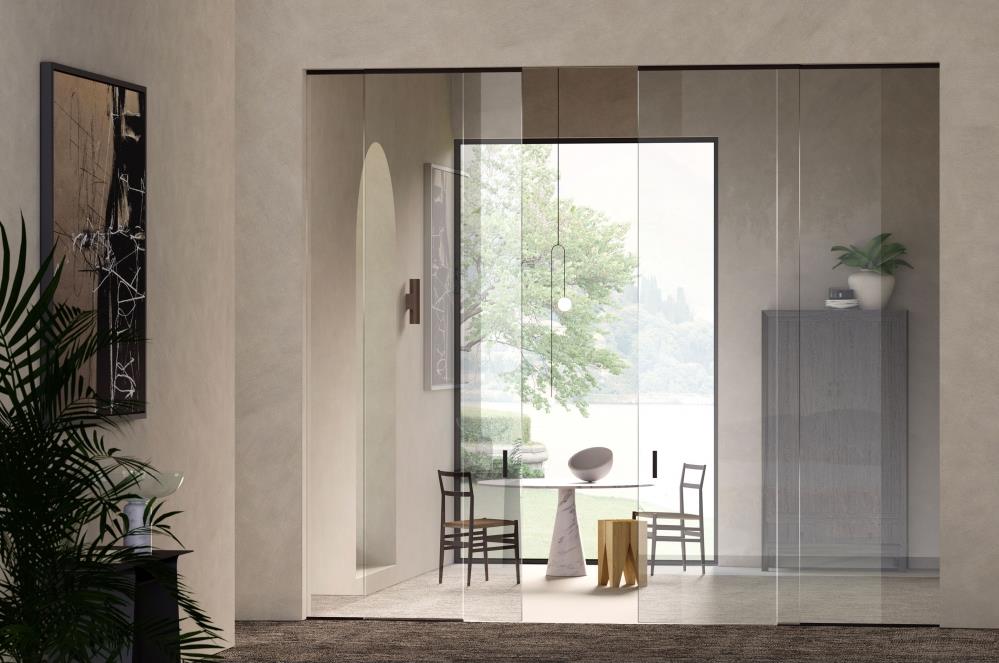
Core Functions and Technological Innovations
1. Smart Lock Integration: The Future of Security
In the world of electronic glass doors, smart locks are among the most prominent features. These locks enable a seamless experience by offering multiple ways to access a property, including fingerprint recognition, password unlocking, and remote control access. By incorporating biometric identification technology, these doors not only provide enhanced security but also make access incredibly convenient.
For example, modern fingerprint recognition systems allow authorized individuals to unlock doors with just a touch, offering a high level of security compared to traditional key-based systems. This functionality makes electronic glass doors ideal for high-security environments such as corporate offices, banks, and luxury residences.
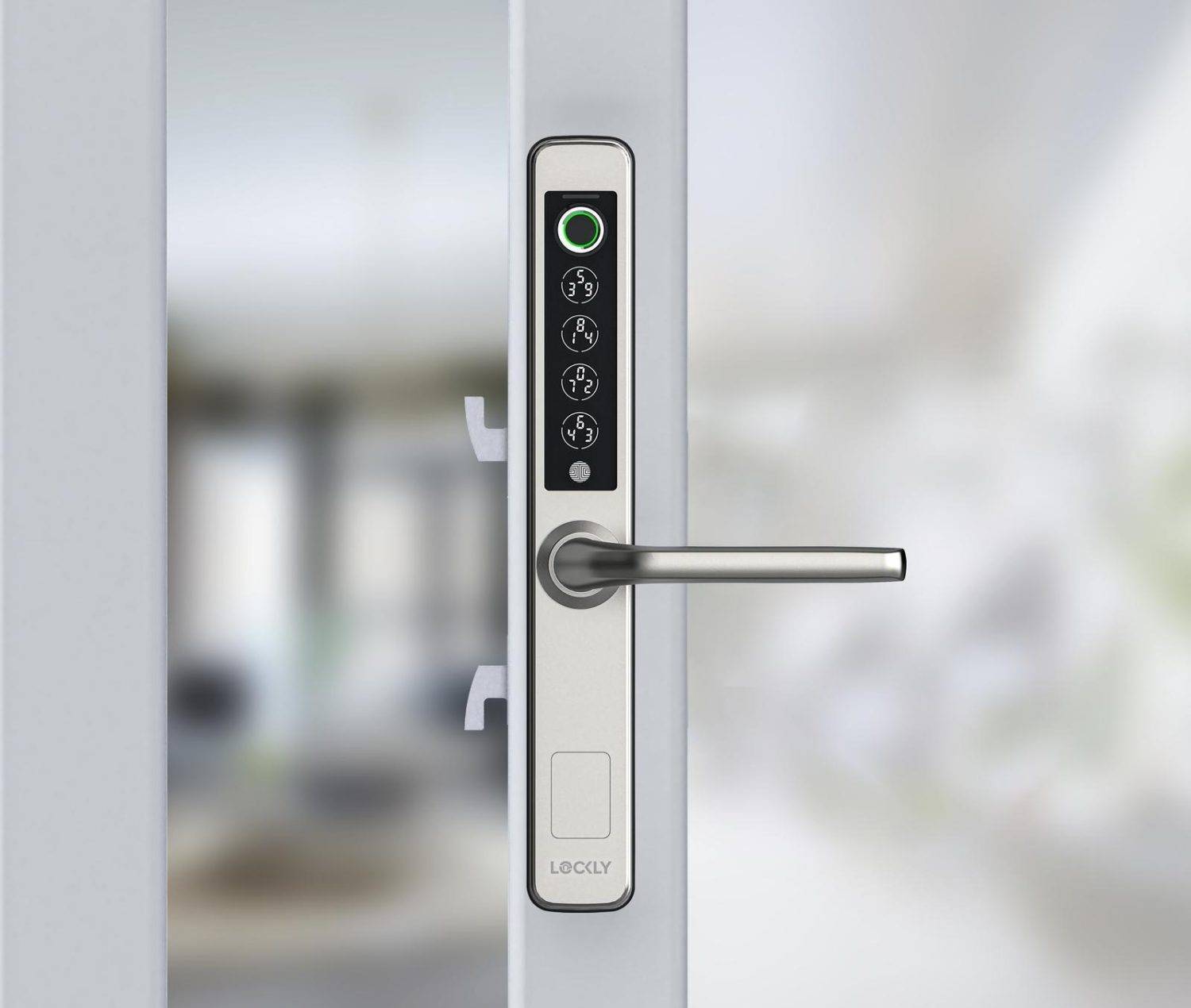
2. Frameless vs. Framed Glass Doors: Design Flexibility
When it comes to the design of electronic glass doors, there are two primary options: framed and frameless designs. Both options offer their unique advantages, allowing for flexibility in both aesthetics and functionality.
Framed doors: Framed doors provide structural support and are ideal for areas where extra reinforcement is needed. These doors often come with additional features such as anti-theft mechanisms and can be customized for higher durability.
Frameless doors:Frameless doors, on the other hand, offer a sleek and modern look, often used in spaces where design is a priority. They provide an unobstructed view and integrate seamlessly with contemporary architectural styles. While frameless glass doors are more visually appealing, they may require more advanced technologies to ensure security and stability.
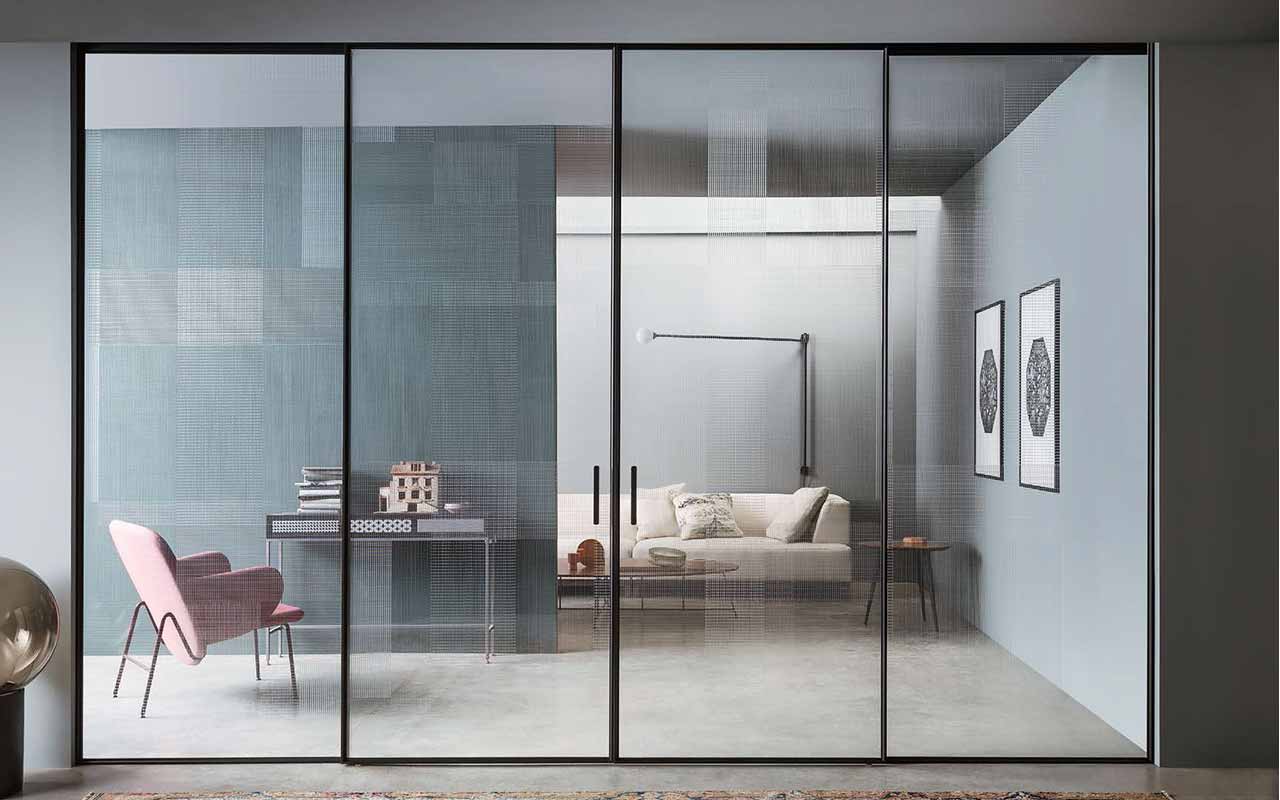
3. Biometric Chips and Electromagnetic Locks: Enhanced Security
Another innovative technology in electronic glass doors involves the integration of biometric chips and electromagnetic locks. These systems offer highly secure, non-mechanical locking mechanisms, ensuring that only authorized individuals can access the premises.
Biometric chips provide a robust level of security by reading unique human characteristics, such as fingerprints or facial features.
Electromagnetic locks are another option for electronic glass doors, offering a fail-safe system that ensures the door stays securely locked until the correct code, key, or biometric data is entered.
By combining these technologies, manufacturers can provide electronic glass doors that deliver enhanced security, making them ideal for commercial, industrial, and even government facilities.
Best Electronic Glass Door Brands (2025Comparison)
The market for electronic glass doors is growing rapidly, with several well-established brands leading the way. DESSMANN, Kaadas, and Yale are among the top players. These top electronic glass door brands offering a range of high-tech products that integrate security features, smart home connectivity, and sleek design. These brands have a significant market share due to their strong reputation for quality and innovation.
DESSMANN

Established in 2009, DESSMANN specializes in the research, development, and manufacturing of high-end smart lock products. The company offers a range of advanced features, including fingerprint recognition, facial recognition, and mobile app-based remote lock control, aiming to enhance user security and convenience. DESSMANN has maintained a leading position in China’s high-end smart lock market, with a market share of 51.8% in the high-end segment.
Kaadas

Founded in 2013, Kaadas focuses on the smart lock industry, integrating product research, manufacturing, sales, installation, and after-sales services. The company provides a diverse range of customizable electronic doors, including frameless designs equipped with anti-theft and fireproof features. Kaadas’s products support various unlocking methods, such as fingerprint recognition, password entry, card access, and mobile Bluetooth connectivity, with some models featuring 3D facial recognition technology. Additional security features include intrusion detection, prank prevention, and low battery alerts, aiming to deliver a safe and convenient smart living experience.
Yale

Yale, a globally recognized brand in the lock industry, offers a comprehensive range of electronic and smart locks catering to both residential and commercial markets. Yale’s electronic locks seamlessly integrate with various home automation systems, providing features such as remote access control and visitor logs to enhance security and convenience. The company emphasizes information security by implementing technologies like SSL and TLS encryption to ensure secure data transmission, reinforcing its commitment to user safety and privacy.
Emerging Brands and Niche Innovators
While the market leaders dominate the space, there is growing competition from smaller, niche companies that are pushing the boundaries of innovation. Brands like Schlage and August focus on developing more affordable and customizable solutions for residential consumers. While companies such as Assa Abloy are pioneering solutions for commercial use with integrated IoT technology.
An important trend in the market is the development of biometric fingerprint locks in electronic glass doors. This has led to a rise in the use of electronic locks in luxury hotels and high-end commercial buildings, offering a seamless and secure experience for both staff and customers.
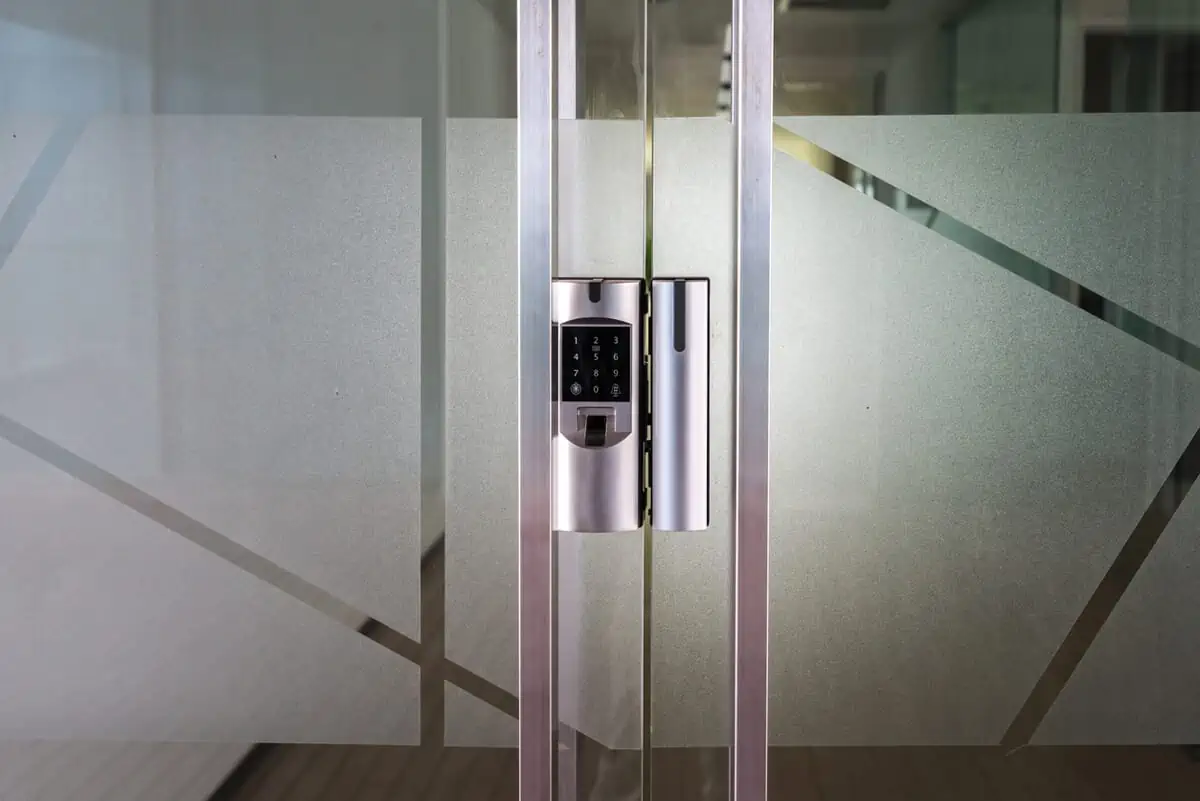
Industry Applications and Technological Adaptation
1. Office Spaces and Commercial Use
One of the most common applications for electronic glass doors is in office spaces and commercial buildings. These doors offer functionality, security, and aesthetics, making them a preferred choice for modern business environments. Features like double-opening doors, visitor password systems, and motion sensors enhance both convenience and security in these spaces.
For instance, a visitor arriving at a corporate office may be provided with a temporary passcode that allows them access through an electronic glass door. These systems offer increased control over who enters and exits the building, enhancing both security and efficiency.

2. Healthcare Facilities and Hospitals
Electronic glass doors are also gaining popularity in healthcare settings, particularly in hospitals and medical centers. They offer a hygienic, secure, and aesthetic solution for sensitive environments. With the ability to control privacy with just a press of a button, these doors are ideal for patient rooms, operating theaters, and other medical spaces.
One key benefit in hospitals is the ability to block UV rays, which helps to reduce the spread of germs and bacteria, maintaining sterile environments. Additionally, the integration of noise-cancelling features makes these doors a perfect fit for hospital settings, ensuring quiet and secure access to different zones.
3. Residential Use: Smart Homes and Privacy Control
In residential settings, electronic glass doors offer increased privacy control and security. These doors are particularly suitable for smart homes, where users can control various functions via mobile apps or smart home assistants like Alexa or Google Assistant.
For instance, if you want to turn your front door’s glass from transparent to opaque for privacy, you can do so remotely. This technology is not only practical but also adds an element of modern design that complements contemporary home décor.
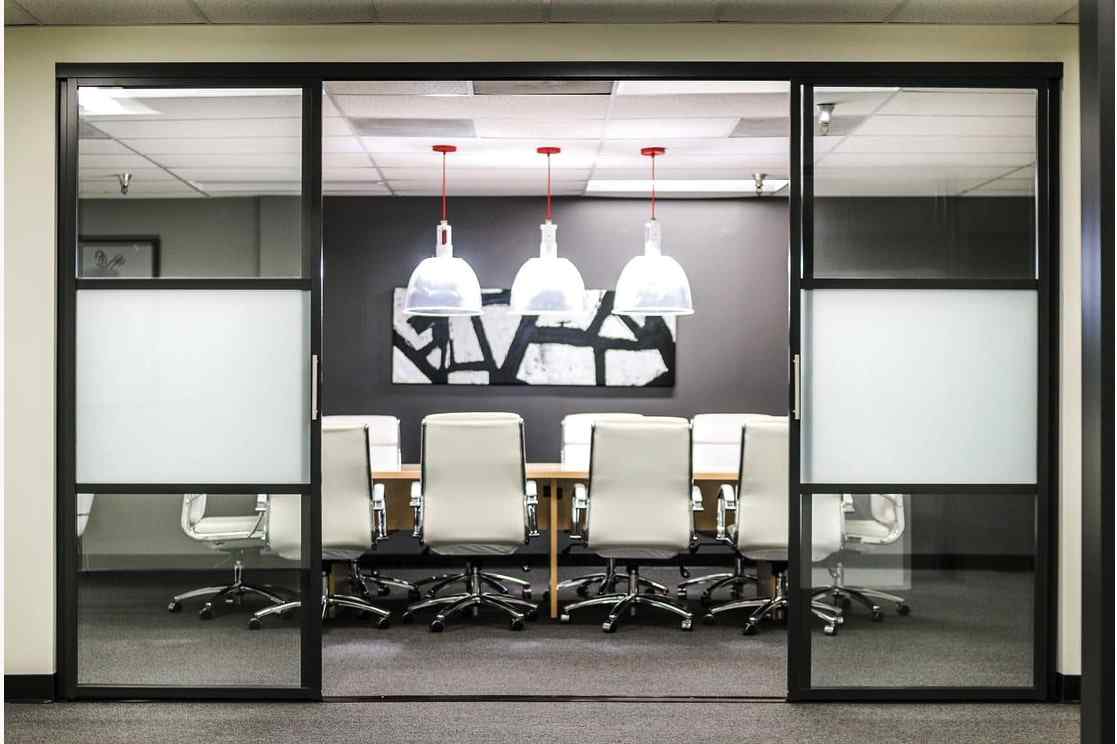
Future Trends and Challenges in the Electronic Glass Door Industry
1. Advancements in Smart Glass Technologies
As the technology behind electronic glass doors continues to evolve, smart glass is expected to play an increasingly prominent role. The integration of advanced technologies such as Zigbee and Wi-Fi connectivity will enable users to control their doors via a centralized platform. This allowing for smart automation and seamless integration with other devices within the home or office.
2. Sustainability and Energy Efficiency
There is a growing emphasis on sustainability in the electronic glass door market. Manufacturers are focusing on creating products that are not only energy-efficient but also contribute to eco-friendly building practices. Electronic glass doors with low-emissivity (Low-E) coatings are designed to reduce energy loss, improving insulation and maintaining temperature stability within buildings.
3. Market Expansion and Consumer Adoption
The electronic glass door market is projected to expand rapidly as more industries and consumers realize the benefits of these innovative systems. As the technology becomes more affordable and accessible, it is expected that residential consumers will increasingly adopt these solutions, especially in luxury homes and smart buildings.

How Much Does an Electronic Glass Door Cost?
The cost of an electronic glass door varies based on factors like size, features, and installation. Basic models typically start at around $1,500, while more advanced options with smart technology, privacy control, and energy-efficient glass can cost between $3,000 to $10,000 or more.
Installation costs, which may include professional setup for smart systems or electrical components, can add several hundred to a couple of thousand dollars to the overall price. Customization and high-end features, such as biometric security or remote access, will increase the price further.
Are Electronic Glass Doors Worth It?
Electronic glass doors offer significant benefits, including enhanced privacy, improved energy efficiency, and advanced security features. They are particularly valuable for spaces where control over light and privacy is essential, and they can add a modern, sophisticated touch to both residential and commercial properties.
However, the high initial cost and the need for professional installation may not be suitable for everyone. For those willing to invest, the long-term benefits—such as energy savings and increased property value—can make these doors worth the investment. Ultimately, it depends on your specific needs, budget, and the value you place on these advanced features.
Conclusion: Is Electronic Glass Door Right for Your Space?
Integrating electronic glass doors into your space offers a blend of modern aesthetics and advanced functionality, enhancing security, privacy, and energy efficiency. However, it’s essential to consider factors such as initial investment, installation complexity, and maintenance requirements to determine their suitability for your specific needs.
PA Window, recognized as one of China’s top 10 door manufacturers, offers a wide range of door solutions tailored to various preferences and requirements. If you’re interested in exploring more about door options and finding solutions that align with your vision, feel free to contact PA for expert guidance and personalized recommendations.
FAQs
A switchable glass door typically costs between $800 and $1,800, depending on size and features, with prices around $80 to $140 per square foot.
Yes, incorporating Low-E (low emissivity) glass into your doors can significantly enhance energy efficiency. Low-E coatings reflect heat back into your home during winter and deflect it outside during summer, helping to maintain comfortable indoor temperatures and reduce energy consumption. This improvement can lead to noticeable savings on heating and cooling bills over time.
Smart glass offers significant benefits in terms of privacy, energy efficiency, and aesthetics. However, its high initial cost and the need for professional installation may be a challenge for budget-conscious users. Whether smart glass is worth it depends on your specific needs and budget.
Smart glass works by changing its transparency in response to electrical stimuli. There are three main types:
Electrochromic Glass: Changes color or opacity when voltage is applied, controlling light and heat.
PDLC (Polymer Dispersed Liquid Crystal) Glass: Becomes transparent or opaque when electricity aligns liquid crystals within the glass.
SPD (Suspended Particle Device) Glass: Alters tint by rearranging suspended particles in the glass when voltage is applied.
Yes, smart glass can be integrated into various types of doors, including residential, commercial, and industrial. It is especially useful for areas where privacy and light control are necessary, such as office spaces, bathrooms, or high-end residences.
An electric glass door is commonly referred to as an automatic glass door or motorized glass door. These doors use electricity to automate opening and closing, often triggered by sensors or switches.










